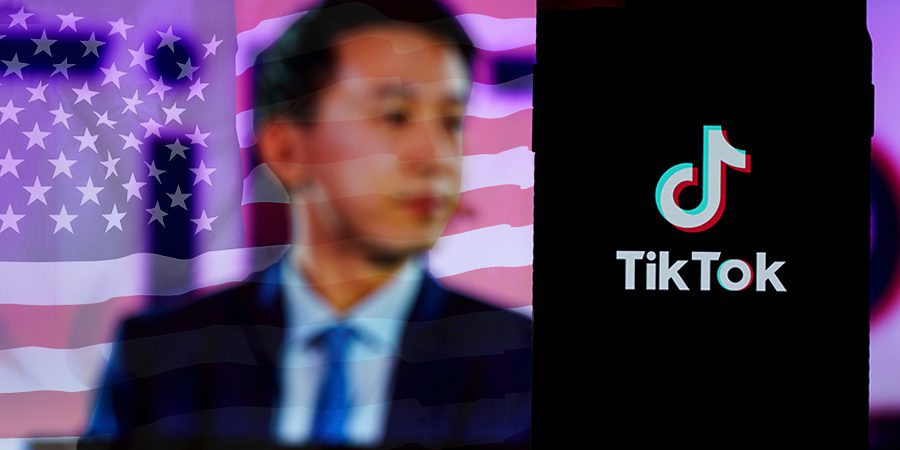In this article, we’ll examine the implications of Eric Han’s departure from TikTok as the Head of US Trust and Safety, the challenges the company faces in securing its future in the US market, and the impact on TikTok’s ongoing efforts to address security concerns.
Key Takeaways:
- Eric Han, TikTok’s Head of US Trust and Safety, will leave the company on May 12th.
- Han led the separate entity TikTok US Data Security (USDS) to address US government concerns about the app.
- TikTok faces potential bans in various states and the RESTRICT Act in Congress.
- The Chinese government opposes the idea of ByteDance divesting from TikTok.
- Han’s departure occurs as TikTok prepares for a presentation to advertisers in New York.
Eric Han’s Role and Contributions to TikTok’s US Operations
Eric Han has been a significant figure at TikTok since 2019, serving as the Head of Trust and Safety for the US division.
In this role, he played a vital part in shaping the company’s safety policies and strategies in the United States.
During his tenure, Han worked tirelessly to improve content moderation and reduce election misinformation on the platform.
In December, he was appointed as the Head of Trust and Safety for TikTok US Data Security (USDS), a separate entity created to convince the US government that the app should not be banned.
TikTok’s Struggles to Address Security Concerns and Government Resistance
TikTok has faced considerable challenges in addressing security concerns raised by the US government, which believes the app could pose a threat to national security.
As a result, the company has faced potential bans in various states and at the federal level through the RESTRICT Act in Congress.
In response to these concerns, TikTok established the USDS, which aimed to store US user data in the country on servers controlled by Oracle.
This move was intended to appease security concerns and demonstrate the company’s commitment to protecting user data.
However, despite these efforts, the Biden administration has indicated that the USDS proposal may not be enough to address its national security concerns, and a full divestiture of TikTok from its Chinese parent company, ByteDance, may be necessary.
Impact of Han’s Departure on the Future of TikTok in the US
Eric Han’s departure from TikTok comes at a critical time for the company, as it continues to grapple with the possibility of a US ban.
Han’s leadership was instrumental in guiding the company through an uncertain and challenging period.
With Han’s exit, Andy Bonillo, the interim USDS general manager, will be stepping in to lead USDS Trust and Safety on a temporary basis.
Finding a suitable long-term replacement for Han’s role is essential for TikTok as the company navigates a complex political landscape in the United States.
As TikTok faces potential bans and increased scrutiny, Han’s departure raises questions about the future direction of the company’s US operations and its ability to adequately address security concerns.
The Ongoing Debate Over Chinese Influence on TikTok
One of the central issues surrounding TikTok is the potential influence of the Chinese government on the platform.
Critics argue that the Chinese government could access user data or manipulate content on the app, posing a threat to national security.
In response, TikTok has consistently maintained that it has never shared data with the Chinese government and would refuse to do so if requested.
However, these assurances have not been enough to quell concerns among US lawmakers, who continue to call for a ban on the app across the country.
The Company’s Efforts to Reassure Advertisers and Users Amid Uncertainty
As TikTok faces uncertainty in the US market, it has been working to reassure both advertisers and users of the platform’s commitment to security and transparency.
Han’s departure coincides with the company’s preparation for a presentation to advertisers in New York on Thursday, highlighting the importance of maintaining advertiser confidence in the platform.
TikTok’s global Trust and Safety team, based in Dublin with leaders in the US, Ireland, and Singapore, continues to develop global safety policies for the platform and oversee content moderation that does not involve US users’ private data.
The team is committed to ensuring a safe and secure environment for all users, regardless of their location.
As part of its efforts to address concerns, TikTok has also been investing in local talent and infrastructure to strengthen its global operations.
This includes hiring regional experts and establishing data centers in various countries to further secure user data and demonstrate compliance with local regulations.
In addition to these measures, the company has been working on enhancing transparency around its data practices, policies, and content moderation processes.
TikTok has implemented a transparency center in the US and has published regular transparency reports to keep users and regulators informed of its efforts to maintain a safe and secure platform.
Conclusion: Navigating an Uncertain Future
The departure of Eric Han from TikTok highlights the ongoing challenges the company faces in securing its future in the US market.
As TikTok grapples with potential bans, national security concerns, and an uncertain political landscape, it must continue to adapt and address the concerns of users, advertisers, and government officials.
TikTok’s ability to find a suitable long-term replacement for Han’s role, invest in local talent, and maintain transparency around its data practices and content moderation policies will be crucial in determining its fate in the US market.
As the debate over Chinese influence on TikTok persists, the company must continue to demonstrate its commitment to user security and data protection to secure its place in the global digital landscape.
 Sections of this topic
Sections of this topic
















